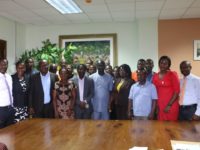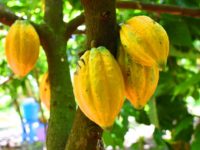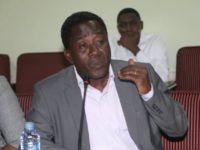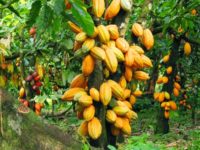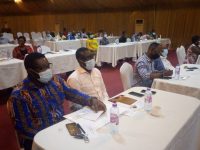A High Court in Accra has ordered the Economic and Organised Crimes Office [EOCO], to unfreeze the bank 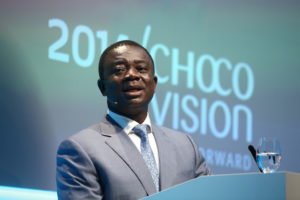 accounts of the embattled former Chief Executive Officer of COCOBOD, Dr. Stephen Opuni.
accounts of the embattled former Chief Executive Officer of COCOBOD, Dr. Stephen Opuni.
According to the order, which has been sighted by Citi News, the accounts in question include bank accounts with Standard Charted Bank and Ecobank.
Dr. Opuni had applied to the court to have his assets unfrozen on April 13. The former COCOBOD CEO; Siedu Agongo, the CEO of Zeera Group of Companies and Agricult Ghana, are facing 27 charges including willfully causing financial loss to the state in a fertilizer contract worth over GH¢43 million.
The state argues that Dr. Opuni misled the Public Procurement Authority to approve single-source contracts for Seidu Agongo and Agricult to provide fertilizers at a different cost.
The Attorney General, Gloria Akuffo, also said Seidu Agongo, acting on behalf of Agricult, submitted fertilizer to the Cocoa Research Institute of Ghana (CRIG) for testing.
The prosecution further said investigations established that Seidu Agongo deposited an amount of GHc25,000 into the account of Dr. Opuni to influence the award of contracts.
It has also been established that between 2014 and 2016, contrary to law, Seidu Agongo and Agricult manufactured fertilizer in commercial quantities when it had not been registered by the Ministry for Food and Agriculture.
At the first hearing of the case, Dr. Opuni pleaded not guilty to all the charges leveled against him.
Fight for prosecution’s documents
Dr. Opuni currently has another application before the court, seeking to be granted copies of documents prosecutors will rely on to prove their case against him.
He argues that this is necessary to present a factual defence.
“I am entitled as of right to all facilities which the prosecution intends to use at the trial. This is to enable myself and my Counsel prepare for the trial,” he said in his application.
In all, Dr. Opuni is seeking to access to about 13 prosecution documents including the contract for the procurement of fertilizers entered into by COCOBOD between 2008 and 2017.
